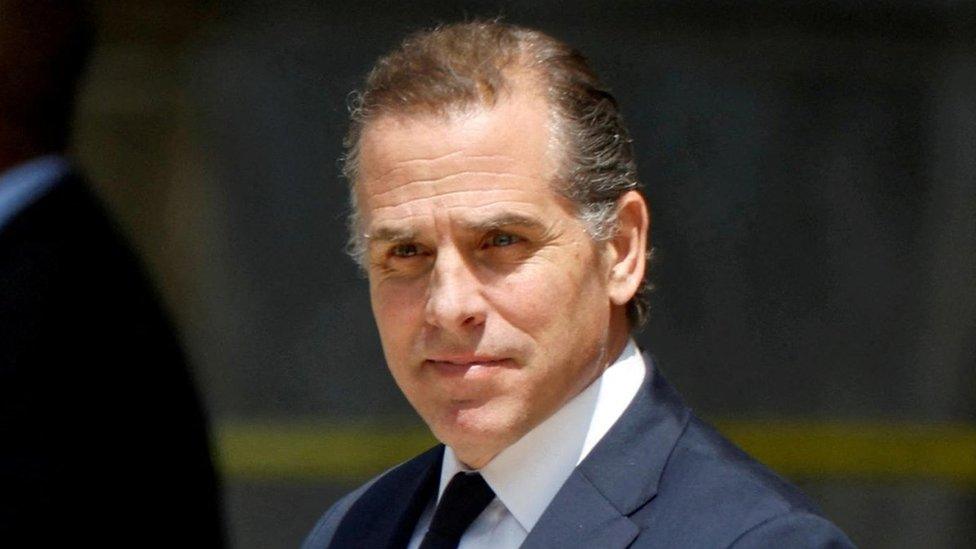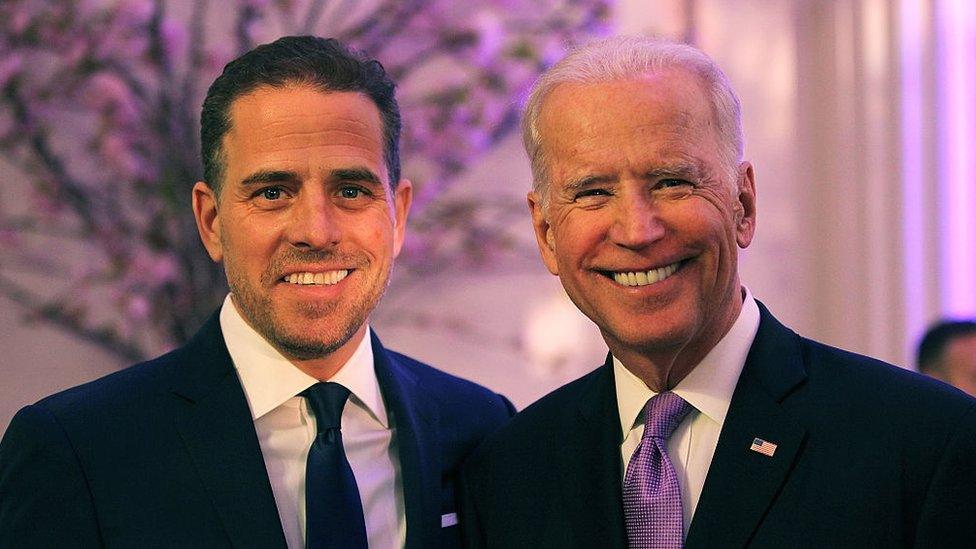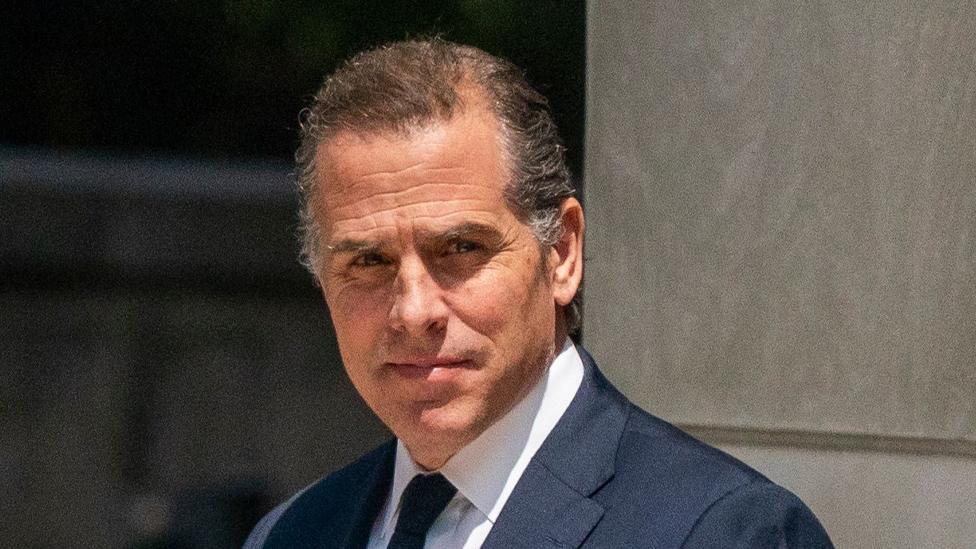What Hunter Biden charges mean for the president
- Published

Joe Biden, First Lady Jill Biden and Hunter Biden, with his son Beau, at the White House on 4 July
Politically speaking, there are currently two Americas.
One is outraged and horrified that the former president, Donald Trump, is facing 91 federal and state criminal charges in what they see as a deep state conspiracy orchestrated in part by Joe Biden's Department of Justice.
The other believes that very same justice department has spent five years unfairly pursuing Mr Biden's son, Hunter, over his tax affairs and behaviour while a self-declared and repentant drug addict.
In other words, both Americas believe the department responsible for enforcing the laws of the land has been taken captive by the other side and is hopelessly politicised.
Hunter Biden's lawyer responded to the news that his client had been indicted on three federal gun charges by accusing the prosecutor of bending to "improper and partisan interference" from Trump-supporting Republicans.
Meanwhile, Andy Biggs, one of those conservatives in Congress, suggested the charges were simply a manoeuvre to make it look like the justice department was fair. "Don't fall for it. They're trying to protect him from way more serious charges coming his way!" he wrote on X, formerly Twitter.
Hunter Biden's legal woes will of course be a blow in a personal sense to his father and his family. But the ramifications go much further than that.
Republicans have for some time known that the president's son is a vulnerability. Exploiting that has the power not just to significantly rile up Joe Biden, but also to help distract from their own problems with Mr Trump's legal jeopardies.
Add to that the fact that most Democrats, when asked, are far from happy that Mr Biden is running for the White House again in 2024. Hunter seems like just another reason for some continuing to press for the 80-year-old president to step aside for the next generation.
All this means that the outcome of Hunter Biden's case will play a significant part in what promises to be a turbulent election year.
But Republicans face something of a dilemma.

It's true that the three gun-related charges are felonies rather than misdemeanours; and it's true that further charges could come relating to Hunter Biden's tax affairs and foreign dealings. But none of it currently quite rises to the scale and quantity of Donald Trump's alleged crimes.
So any attempt to weaponise Hunter Biden's problems could simply invite the American people to compare and contrast.
Also, as Democrats will no doubt continue to point out, Hunter Biden is not running for dog catcher, let alone to be President of the United States.
One intriguing aspect of Hunter Biden's case is that his lawyers clearly believe the plea deal that broke down in July could still be resurrected - and that the recent expansion of Second Amendment rights by various courts could be an element in his defence.
After all, there is nothing in the Constitution about drug addicts being unable to bear arms.
That would be an extraordinary irony given where most Democrats stand on gun control.
Watch: Why Hunter Biden is important to Republicans
Thursday's indictment came just days after Kevin McCarthy, the Republican Speaker of the House of Representatives, announced an impeachment inquiry into President Biden - a move dismissed as a political stunt by the White House.
Mr McCarthy said there were "serious and credible allegations" into the family's business dealings and President Biden's conduct. And Republicans will hope this new inquiry implicates the president in the peddling of power and corruption.
So far, however, seven months of existing investigations into Hunter Biden have produced snippets from former business partners, an FBI informant and a couple of IRS agents, but nothing that comes close to a real smoking gun.
That may change when the subpoenas begin to fly, but the Republican majority in the House is so slim, that it is far from certain that Republicans would win an impeachment vote on the House floor, if it got that far.
What is certain, is that the once-clear distinction between the political and legal systems has become increasingly blurred. And that's a major problem, according to Randy Zelin, adjunct professor of law at Cornell Law School.
"Somebody woke up one day and said, boy I have a new toy and that is called the federal criminal justice system, where I'm going to use the criminal system to punish people who don't agree with my politics," Prof Zelin told the BBC.
"I think the sole influence here is that this country is being torn apart by this never-ending battle."

Sign up for our morning newsletter and get BBC News in your inbox.

- Published14 September 2023

- Published11 June 2024

- Published7 September 2023

- Published8 December 2023

- Published20 July 2023